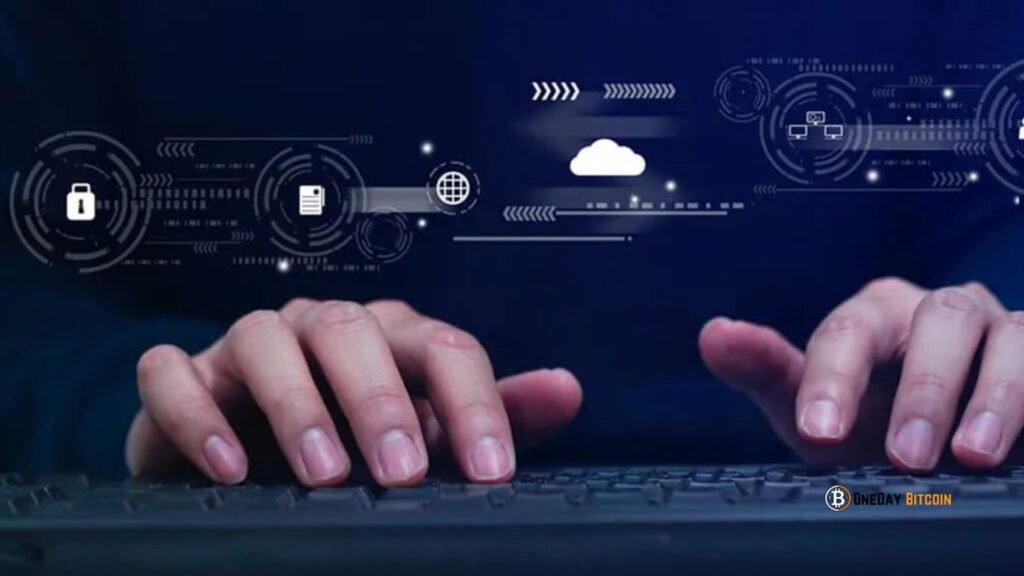Bitcoin mining has garnered significant attention since Bitcoin’s inception in 2009. For many, the allure of mining Bitcoin stems from the prospect of earning the cryptocurrency without purchasing it. However, the question arises: is free Bitcoin mining possible or a myth? In this article, we will explore the concept of Bitcoin mining, the tools available for “free” mining, and whether or not it’s a viable option today.
What is Bitcoin Mining?
Bitcoin mining is the process through which new Bitcoins are created and added to the blockchain. It involves solving complex mathematical problems using computing power to validate Bitcoin transactions on the network. Once the problem is solved, the miner is rewarded with newly created Bitcoins and any transaction fees associated with the block of transactions they have validated. This process is known as Proof of Work (PoW), ensuring the Bitcoin network remains secure and decentralized.
Bitcoin mining was originally designed to be accessible to anyone with a computer. However, as Bitcoin’s popularity grew, so did the mining difficulty, requiring specialized hardware, such as ASICs (Application-Specific Integrated Circuits), to mine efficiently. Over time, the cost of mining equipment and electricity increased, making the idea of “free” mining more complicated.
Is Free Bitcoin Mining Possible?
The term “free Bitcoin mining” can be misleading. While it’s theoretically possible to mine Bitcoin without spending money on mining hardware or paying for electricity, significant challenges make it difficult to earn substantial amounts of Bitcoin without incurring some kind of cost.

Free Bitcoin Mining Apps and Platforms
There are several platforms and apps that claim to offer “free Bitcoin mining.” These services typically allow users to earn small amounts of Bitcoin through cloud mining or mobile apps. Some of the most well-known platforms include:
- StormGain: StormGain is a cloud mining platform that allows users to mine Bitcoin for free. It requires users to register on the platform and use its mining features via the mobile app. The amount of Bitcoin that can be mined is relatively small, and users must trade or use other services on the platform to withdraw their earnings.
- Cryptotab Browser: Cryptotab is a browser that claims to allow users to mine Bitcoin while browsing the internet. It uses your computer’s processing power to mine, and you can earn Bitcoin passively. However, the earnings are minimal unless you refer others to the browser, making it more of a referral system than a traditional mining platform.
- Rollercoin: Rollercoin is an online game where users simulate Bitcoin mining. Players earn Bitcoin by playing games and completing tasks. While it’s a fun and interactive way to learn about mining, the Bitcoin earned is small, and it’s not considered a serious method for obtaining substantial amounts of cryptocurrency.
While these platforms allow users to earn small amounts of Bitcoin, they often come with limitations, such as minimum withdrawal amounts, long waiting times, or requirements to use additional services (such as trading) before users can access their earnings. Therefore, while these apps may technically be “free,” the amount of Bitcoin that can be mined is minimal, and users must invest time and effort into the process.
Cloud Mining Services
Another way to get “free” Bitcoin mining is to use cloud mining. Cloud mining lets people rent mining power from data centers far away, which then does the real mining. Some cloud mining services let users try them out for free or mine a small amount of Bitcoin without simultaneously paying for the whole service. But computer mining services aren’t really free in the long run. Most services ask users to buy mining contracts or pay a fee to get access to higher mining rates.
It’s essential to exercise caution when considering cloud mining platforms, as the space is rife with scams and fraudulent schemes. Many cloud mining services promise high returns but fail to deliver. Therefore, it’s crucial to research the platform’s legitimacy before investing time or money.
The Economics of Bitcoin Mining
It’s important to consider the economics of mining to understand why “free” Bitcoin mining is difficult to achieve.
Equipment Costs
In the early days of Bitcoin, mining could be done using a personal computer or GPU (Graphics Processing Unit). However, as more miners joined the network, the mining difficulty increased, requiring more powerful and expensive equipment. Today, mining Bitcoin requires specialized hardware known as ASICs, which are designed solely for the purpose of mining cryptocurrencies. ASICs are expensive, often costing several thousand dollars, and they quickly become outdated as mining difficulty increases. Without the proper equipment, mining Bitcoin becomes nearly impossible, and most “free” mining platforms that don’t require equipment offer extremely small rewards.
Electricity Costs
Bitcoin mining is energy-intensive. The process of solving cryptographic puzzles requires a significant amount of computational power, which in turn requires large amounts of electricity. This is why mining operations are often set up in regions with cheap electricity or abundant renewable energy. Electricity costs can quickly negate potential profits for individuals looking to mine Bitcoin at home. Even if you manage to mine a small amount of Bitcoin, the cost of running your mining equipment can exceed the value you earn.
Mining Pools
Miners try to increase their chances of earning Bitcoin by joining mining pools. A mining pool is a group of miners who collectively combine their computational power to mine blocks. When a block is successfully mined, the rewards are distributed among the pool members based on their contribution to the pool’s overall mining power. While mining pools increase the likelihood of earning Bitcoin, they also come with fees, and the rewards are split among many participants. For small miners, the amount of Bitcoin earned through a pool may be less than the cost of electricity and hardware maintenance, making the concept of “free” mining even less realistic.
The Risks of Free Bitcoin Mining
While the idea of mining Bitcoin for free is appealing, several risks and challenges are associated with it.
Scams and Fraudulent Platforms
The promise of free Bitcoin mining often attracts scammers who set up fraudulent platforms to exploit users. These scams may ask users to invest in cloud mining contracts or download mining software that ultimately does nothing but steal personal information or infect devices with malware. It’s crucial to do thorough research and read user reviews before using any platform that promises free Bitcoin mining.
Limited Earnings
Even if you find a legitimate platform offering free Bitcoin mining, the amount you can earn is often minimal. Free mining services typically provide only a fraction of the computing power needed to mine a block, resulting in small rewards. It could take months or even years to accumulate enough Bitcoin to make it worthwhile.
Hidden Costs
Many platforms that claim to offer free Bitcoin mining come with hidden costs. For example, cloud mining platforms may offer a free trial but require users to purchase a contract to continue mining. Similarly, “free” mobile apps may use your device’s computing power, leading to increased electricity bills, wear and tear on your device, and reduced performance.
Alternatives to Free Bitcoin Mining
If you’re looking to earn Bitcoin without spending money on mining hardware, there are other alternatives to consider:

- Faucets: Bitcoin faucets allow users to earn small amounts of Bitcoin by completing tasks such as watching ads, solving captchas, or participating in surveys. While the rewards are small, faucets can be a way to accumulate Bitcoin without investing in mining equipment.
- Airdrops: Some cryptocurrency projects distribute free tokens to users through promotional campaigns. While not specifically Bitcoin, participating in airdrops can be a way to earn cryptocurrencies for free.
- Staking: If you hold certain cryptocurrencies (such as Ethereum 2.0 or Cardano), you can participate in staking, locking up your network coins to help validate transactions. In return, you earn rewards in the form of new coins. While this method doesn’t work for Bitcoin, it’s an alternative way to earn passive income in cryptocurrency.
Also Read: Bitcoin Mining Apps Real or Fake?
In Summary
The concept of free Bitcoin mining is more myth than reality. At the same time, some platforms allow users to mine small amounts of Bitcoin. The rewards are typically minimal without upfront costs, and the time and effort required may outweigh the potential earnings. Additionally, the risks of scams and fraudulent platforms make it essential to approach free mining services cautiously.
Investing in the proper hardware and electricity costs remains the most viable option for those seriously interested in mining Bitcoin. However, for those looking to earn Bitcoin without mining, alternatives such as faucets, airdrops, and staking may provide a safer and more realistic way to accumulate cryptocurrency.


